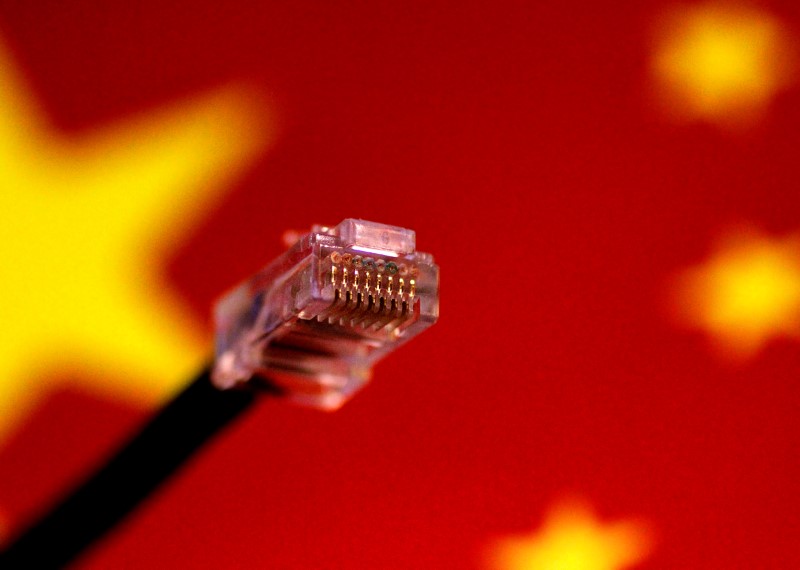(Bloomberg Opinion) -- Last August, when a paramilitary group almost became the first default among local government financing vehicles, few would have thought that another asset frenzy was afoot in China.
Yet off-budget local government debt is having a fun ride. After that scare, yields for AA rated, three-year bonds issued by local government financing vehicles compressed to 3.9 percent from about 5 percent.(1)
For yield-thirsty investors, off-balance sheet local government debt can be very attractive: Such bonds offer corporate bond yields while seemingly having quasi-sovereign credit status.
Don’t get too comfortable – after all, China has accumulated nearly 30 trillion yuan ($4.49 billion) of LGFV debt, according to HSBC Holdings Plc (LON:HSBA).
The latest warning comes from Qinghai Provincial Investment Group Co. The aluminum producer failed to wire funds for a coupon payment for its $300 million dollar bond due 2020, Christopher Anstey and Carrie Hong of Bloomberg News reported. On Monday morning, the bond tumbled 20 cents to trade at 75 cents on the dollar.
There are more red flags in this sector. As early as 2015, the State Council clarified that new issues by local government financing vehicles qualify as corporate debt, meaning there’s no government backstop. In addition, cash flow-based credit analysis on LGFV debt is almost pointless: After years of big speeches, fiscal reform in China has gone nowhere. Local governments still don’t have reliable sources of income to service their borrowings – handouts from Beijing comprise about a third of their revenue, estimates Moody’s Investors Service.
So why are investors still piling in?
Because Beijing often turns left while signaling right. Chinese investors can be forgiven for believing off-balance-sheet debt will ultimately get a state bailout.
First, it looks like municipal governments themselves don't distinguish on-budget from off-budget.
Project municipal bonds, the Ministry of Finance’s new preferred form of infrastructure financing, are a case in point. Just like LGFV bonds, this special-purchase debt isn’t included on local governments’ books. The argument is simple: Cash flow from underlying projects, in theory, can cover for interest and principal payments, while investors would shoulder any shortfall. Last year, local governments issued 1.9 trillion yuan of project municipals.
Local governments are happily selling project munis like they’re on the balance sheet. In January, Henan province sold such a three-year bond at 3.13 percent, the same coupon rate as its on-budget general-purpose muni. Its 1.5 billion yuan, 15-year project bond that funds new subways offers a 3.79 percent interest rate, merely 40 basis points above the sovereign benchmark.
Second, Beijing has gone out of its way to save struggling local entities.
In 2018, private enterprises missed payments on more than 7 percent of bonds issued, HSBC estimates. As early as 2015, even state-owned companies counted themselves among the list of defaulters. And yet not a single local government-affiliated issuer has defaulted, ever.
In August, when Xinjiang Production Construction 6th Shi State-Owned Asset Management Co. repaid its bonds two days after its “technical default,” the paramilitary group blamed the clearing house’s operating hours. A month later, Qinghai Provincial Investment Group has narrowly missed a default after months of uncertainty; it may ultimately get a rescue from China’s State Power Investment Corp.
As for provinces burdened with off-balance-sheet debt, Beijing seems to be looking for new solutions, too. China Development Bank will start offering long-term lending to Zhenjiang, an eastern city of Jiangsu province famous for its black vinegar, Qingqi She and Jing Zhao at Bloomberg News reported. The province, China’s second-largest in terms of GDP, is a ticking time bomb, accounting for 15 percent of all LGFV dollar issues.
And let’s not forget the swaps: Between 2015 and 2018, local governments issued 12 trillion yuan of munis and used the proceeds to repay their off-balance-sheet borrowings amassed before that period.
With this kind of pricing and corporate action, it’s no surprise that onshore investors are confused. Time will tell how long Beijing can keep up its support.
(1) In China, ratings agencies have severe grade inflation. AA ratings areoften seen as demarcating high-yield.
